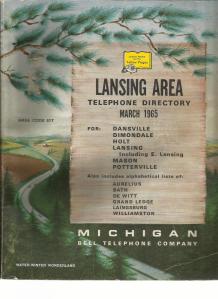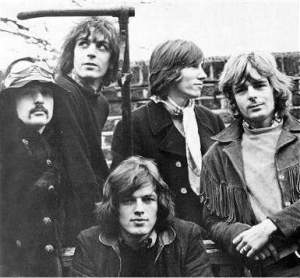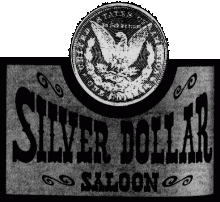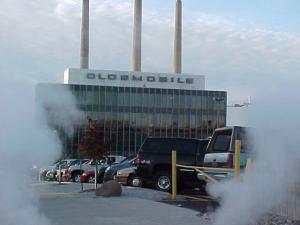Change is inevitable, as the old saying goes. We cannot pause a moment in time and relive it whenever we feel nostalgic. Time marches forward without our consent, changing people and places and lives.
I recently wrote a blog article in which I discussed finding a 1965 telephone directory at a garage sale. This simple book, a time capsule brimming with memories long forgotten, is a perfect example of change. A perusal of the Yellow Pages recalls long-lost restaurants that once populated my home town before the flood of fast food joints overtook the city. Discovering that an infamous adult book shop had once been a neighborhood grocery store proves change isn’t necessarily a positive advance.
As interesting as those Yellow Pages are, they don’t compare to the residential pages. There, on those White Pages, are the names, addresses, and phone numbers of human beings no longer among the living. I found my grandfather listed as living at a house that has long-ago been demolished. My parents, married just two years in 1965, were 19 years old when this phone book came into existence in March of that year. They’d had one child at that point—my older brother—but were on the verge of welcoming my sister into the fold a month later. My grandparents have all passed on, as has my father. These are changes every person must eventually face.
Change happens every minute of every day, often taking place without much notice. Nobody goes to bed a young person and wakes up old. It might seem that’s the case, but the human body begins aging from the moment of conception. We marvel at how quickly our children grow up. But growing up is actually growing old. The cells in our bodies are in a constant state of change; cells die and cells are replaced in a continual process. In other words: People change every moment we live.
I once watched a documentary on the band Pink Floyd. The program focused on the making of their album Wish You Were Here. Band members told the story of a strange visitor who had appeared at the studio one afternoon. This pudgy, balding man with trousers pulled up to nearly his chest just stood around, as if looking for something or somebody. Questions were whispered as to who this might be. Finally, after nearly half an hour, the realization struck each member. This odd, balloon-shaped fellow was Syd Barrett, a founding member of Pink Floyd. In fact, Syd had been the creative force that guided the band in its early years. Too many LSD trips had rendered the man mentally unfit to continue leading the group, so he was summarily dismissed six years prior to this meeting.
The talk amongst band members centered on how much Syd had changed. Last time they saw the man, he’d been thin and wiry, with a head full of hair. Tears were shed over the starkness of Syd’s changed appearance. The irony in all this is that the band had just recorded the song “Shine On You Crazy Diamond,” which is about how much they missed Syd Barrett, and here he was, standing there in the studio with them, completely unrecognizable. They’d missed Syd—just not this changed version of him. When Syd finally left, he didn’t have a ride. He waited out front of Abbey Road Studios for quite a while. As band members began leaving, one member slumped down in the front seat of the car in which he was riding, to avoid being seen by Mr. Barrett.
Change doesn’t always have to be physical, either. In my younger years I enjoyed going to a local rock and roll club. I could be found at the Silver Dollar Saloon on any given night back in the 1980s. It was the height of the reign of hair metal. Hair bands played live on the club’s stage. I loved being there with my girlfriend and those friends I’d went to school with, drinking cheap pitchers of beer and dollar shots of tequila until closing time. I remember thinking—and probably saying out loud—that I would always hang out at the Sleazy D—the nickname attached to the club. I’d never grow too old or too uncool to fit in with that crowd.
Then change came. The club switched to country music in the 1990s, and eventually closed its doors for good somewhere around 2004. The building met the wrecking ball a few years back. A new apartment complex for foreign students attending Michigan State University now occupies that parcel of land.
The thing is, even if the club had remained, serving up great metal music and tasty alcoholic beverages, I would not have continued as a club patron. Why? Because I’ve changed. For starters, I no longer drink alcohol. And I no longer enjoy those wild nights on the town. I’ve become that old, uncool guy who’d rather stay at home, read a book, watch a little TV, and go to bed early. Partying until two or three in the morning just doesn’t appeal to me the way it did to my twenty-something self.
Even those bands I used to listen to at the club were victimized by change. Hair metal met its fate in the early 1990s, when bands like Nirvana and Pearl Jam unleashed grunge music on the world. I’ve found videos on YouTube of some of those bands that regularly played at The Silver Dollar Saloon. These are recent videos capturing reunion shows. Change has left its mark all over those bands. Skinny guys and girls are now, well, let’s just say they’re plump. Plump is much friendlier than using that f-word (fat). Hair bands? Not anymore. Bald or thinning would adequately describe many of these former rock and roll heroes. Fingers aren’t as nimble on those guitars; vocals can’t quite reach those high notes that once impressed audiences.
The wrecking ball is a common theme where change leaves its mark. Two houses I lived in as a child no longer stand. One caught fire and had to be brought down. The other fell victim to another family’s ideas for change. The land was purchased, the house destroyed, and a new one erected—though not on that exact spot.
Much of the grand old buildings in the downtown area of my city have fallen to the wrecking ball. When Lansing found itself with a new minor league baseball team, a stadium had to be built. Buildings that had stood for over a hundred years were force to make way for change. Knapp’s Department Store, once the jewel of downtown shopping, is now an office complex with rental apartments occupying the top floors.
The Oldsmobile factories that once provided a living to thousands of middle class families all over the area are now vacant fields of overgrown weeds. The wrecking ball caught them, as well. Same goes for those subsidiaries of General Motors: the Fisher Body plant that once occupied multiple blocks in a local neighborhood is gone. That once-prosperous neighborhood is a shell of what it had been. Stores, restaurants, and bars that catered to employees of the plant are mostly empty buildings with boarded-up windows marked by graffiti.
Oldsmobile, and its parent General Motors, once kept the city alive. In my family, my parents, grandfathers, aunts and uncles, they all drew paychecks from the auto factories. Even my great-uncles owned a business that chrome-plated the bumpers and door handles on every Oldsmobile produced for decades. Change took all that away.
Certainly places change. But so do people. It’s this sort of change that often drives divorce rates through the ceiling. A couple may marry when they’re young and in love, only to realize that just maybe it really wasn’t love that brought them together. They grow apart, becoming strangers to one another. It’s change at work. Feelings change—even if we don’t want them to. It’s just as easy for a person to fall out of love with somebody as it is to fall in love. Once upon a time in America, divorce simply wasn’t an option. Couples married and remained that way until death—regardless of how they felt about one another. My grandmother once said that while she loved my grandfather, she was not in love with the man—probably had never been, either. But they remained married for over fifty years, ending with Granddad’s death in 1989.
Society has changed its ideas of what is acceptable and what is not. Divorce at one time carried a stigma. Nobody wanted to be that person, the one who failed at something as personal as your own marriage. But nowadays, we think nothing of marriages lasting a few years or less. The reasons for splitting are varied, though mostly foolish. Families break apart, lives become fractured and left scarred.
Where we’d once been a somewhat religious nation, we now bow to atheist groups who seek to push God out of the public conscience. Anybody with eyes and a TV can see the results of this change. Respect for one another has all but disappeared. Personal opinions that differ from the politically correct are not tolerated. Human life no longer retains the value it once held. Not before the mid-1990s had we seen the mass shootings that seem to be reported almost weekly on the evening news. Some blame easy access to guns as the reason for these heinous crimes. But guns have always been readily available to Americans—with fewer and less restrictive laws in the past—yet we never witnessed the mass murders of school children until recently. What changed?
Cell phones are an amazing change. So small, these devices fit in our pockets and go wherever we take them. We can push a button and communicate with anybody in the world. We can surf the net, check our e-mail, post on Facebook, and send a tweet while vacationing in the Amazon Rain Forest. The trade-off? We no longer write letters. Neither do we socialize face to face the way we once did. People today often have their noses buried in their smart phones. Friends come to visit and spend a good deal of the time on their phones. Next time you’re in a restaurant, look around at your fellow diners. You’ll most likely see tables where there are three or four friends eating or waiting on their food. But rather than talking to the person in front of them, they’ve got their phone out, fingers furiously tapping a text to somebody not at that table.
As you can see, change takes many shapes and forms. Change can be amazing and mind-blowing. It can be humbling to witness. Change can make life easy or it can rip a life to shreds and walk away. Change is the one constant you can count on in this world. Change does what it will. Change will never need our approval.








Such a rich story Beem. I actually graduated from Michigan State in 1965 and lived in Lansing for three years after. It was a nice place and when we moved we were sorry to leave. The places I remember were probably under flux by the time you were old enough to visit. Mac’s bar on Grand River was a favorite hang after hours. Pool, beer, and chili dogs were a big draw. Thanks for the memories. (I imagine I was listed in the book, but don’t remember if I had an unlisted number or not.)
LikeLiked by 1 person
Thanks for sharing that info, John. I’m a lifelong Spartan sports fan! Mac’s bar is still open, still a popular place. I guess some things haven’t changed–yet!
LikeLiked by 1 person
YAY
LikeLiked by 1 person
I learned at a young age in the IT industry that the only constant is change! Interesting article Beem.
LikeLiked by 1 person
So true, Bill. Change is the one constant. Thanks for your comment.
LikeLike
Well Beem, I suddenly woke up one day and I was old. But you will never know it because I keep beating those old cells back. As a matter of fact, I’m hoping to come out with my next book on this very topic. And tell how I overcame certain adversities to be in relatively good health. Those old phone books can show an amazing picture to the past. Thank you my dear friend from Michigan. We have our own memories don’t we.
LikeLiked by 1 person
Indeed we do have our memories, Shirley! I’m with you; I woke up one day and found I was no longer young! But I try to eat right, take a bunch of vitamins, and I exercise regularly. It helps. Thanks for stopping by. Best wishes with the new book.
LikeLike
A great article, very much enjoyed by another oldie early 50’s vintage.
LikeLiked by 1 person
Thank you for stopping by my blog, David. I’m glad you liked this article. Your comments are appreciated.
LikeLiked by 1 person
I worked at the Silver Dollar Saloon in 82/83 while attending Michigan State, I started there when they reopened after the fire. I became friends with some great people who worked there, and got to know quite a few regulars. But unfortunately I can’t even remember last names anymore. It was a completely different world back then.
LikeLiked by 1 person
Thanks for sharing that, Michelle. You are absolutely right: It truly was a different world. Those were some of the greatest times. I’m like you, names escape me these days. But I remember the fun, the camaraderie, the carefree lives we all lived. And the MUSIC! Thank you for stopping by for a read.
LikeLike